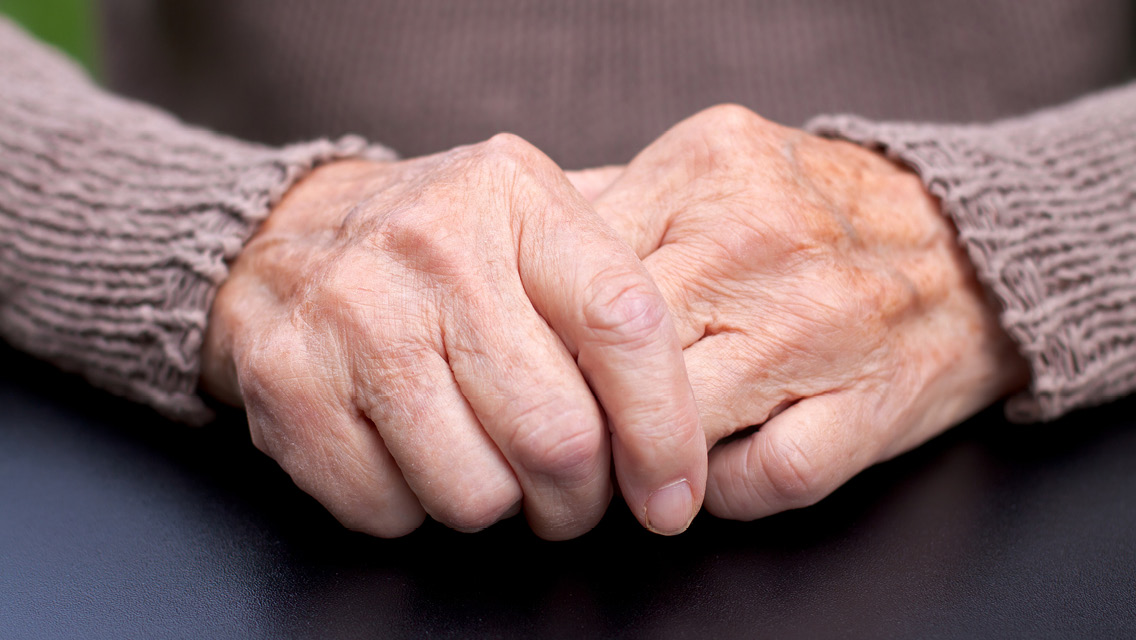Maybe you get a stomachache before speaking in public. Or suddenly feel ravenous when you read a good restaurant review. On these occasions, it seems obvious that what goes on in the head affects what happens in the stomach.
Thank your autonomic nervous system (ANS) for that, suggests Marc David, founder of the Institute for the Psychology of Eating and author of The Slow Down Diet.
The ANS is the part of the nervous system that gets the stomach churning when we’re nervous; it also gets the digestive enzymes flowing when we feel relaxed, safe, and ready to eat. “The same part of our brain that turns on stress turns off digestion,” David explains. Likewise, he notes, “the part of the brain that turns on the relaxation response turns on full, healthy digestive power.”
These two functions of the nervous system are aspects of the sympathetic response, which activates in times of stress, and the parasympathetic response, sometimes called the “rest and digest” phase.
The sympathetic nervous response shuts down digestion for evolutionary purposes, notes wellness educator Kenton Whitman, cofounder of ReWild University in Cable, Wis. “We are each about 125,000 calories of yumminess to a saber-toothed cat,” he says. “You see that cat, and all your blood and energy is shot out to your arms and legs, so you can fight or run.”
When we’re in survival mode, other aspects of digestion also cease to operate. Peristalsis slows to a crawl and appetite disappears.
We typically don’t consider the effect of stress on digestion until more acute issues arise. “Most of us think about digestion only when it’s indigestion — bloating, gas, heartburn, constipation, and all the other unpleasant symptoms that quickly direct our attention to our digestive tract,” writes health coach Halé Sofia Schatz in If the Buddha Came to Dinner.
Yet when we take seriously how much digestion is influenced by our mental and emotional states, it opens up a treasure trove of techniques for improving it.
Whether it’s a morning meditation, a predinner cocktail, or simply taking 10 deep breaths before the first bite, anything that allows the body’s rest-and-digest system to take over will improve digestion and help maximize the pleasure and nutrition you receive from your food.
The following strategies can help you settle your mind and your stomach so you can fully enjoy every meal.
1. Move
When we’re sedentary, we digest poorly. “Movement helps the blood flow and makes us feel better,” says Schatz, who has spent 40 years working with clients on digestion issues. One 2017 study suggests that exercise also helps enrich microflora diversity, which could help reduce gastrointestinal disorders.
Try this:
Do whatever moves you: Dance, swim, lift weights, ride a bike, walk. Enjoyment is key. “It needs to be movement you love,” says Schatz.
“Movement encourages peristalsis of the bowel, clears the mind, and reduces mental tension,” writes functional-medicine physician Vincent Pedre, MD, in his book, Happy Gut.
The Italian tradition of the leisurely evening stroll, or passeggiata, is a routine endocrinologist David Ludwig, PhD, MD, recommends to all his weight-loss patients, not least because research suggests that walking can reduce insulin levels. One 2013 study published in Diabetes Care found that among older adult subjects at risk for glucose intolerance, three 15-minute walks daily increased their ability to regulate their blood sugar for the following 24 hours, with the most pronounced effect in the three hours after dinner.
(See “How Walking Aids Digestion” and “8 Yoga Poses to Help Digestion” for more.)
2. Be Mindful in the Morning
There are good reasons to avoid checking in with the world until you’ve finished your first cup of coffee or tea: Stressful activities first thing in the morning are likely to trigger a hormonal response that can linger all day. Pedre recommends starting each day peacefully. “A calm and relaxed body equals a relaxed and healthy gut,” he explains.
Try this:
Pedre suggests this three-step morning ritual:
1. Upon waking, set your intention for the day. Identify something you’re grateful for.
2. Spend five to 10 minutes doing a few of the following yoga poses: cow, cat, supine twist, bridge, forward bend, or downward-facing dog. They all benefit the digestive organs.
3. Finish with a five-minute meditation, bringing your awareness to the center of your body.
3. Breathe Deep
Eating can often seem like a good way to ease anxiety, but an anxious mind can lead to episodes of indigestion and bloating. This is hardly relaxing.
“A lot of people who have digestive problems have become accustomed to being uncomfortable,” says Megan Riehl, PsyD, a University of Michigan clinical psychologist who specializes in gastrointestinal issues and anxiety disorders.
Stress reduction, meanwhile, has been shown to significantly improve the symptoms of irritable bowel syndrome, which affects 10 to 25 percent of Americans. Diaphragmatic breathing and other techniques can help you identify tension and (eventually) calm down. This can stimulate the rest-and-digest response.
Try this:
Inhale through your nose for four seconds, letting your belly rise, then exhale through your mouth for six seconds, letting your belly fall. “If you’re anxious about eating, try this beforehand,” Riehl says. Doing this after eating can reduce indigestion and heartburn.
4. Focus on Pleasure
Engaging the senses is an excellent way to improve digestion. “Pleasure is a powerful metabolizer that increases oxygenation and blood flow and decreases cortisol and insulin,” explains David.
Research has shown that the body boosts its production of digestion-related messaging molecules by more than 50 percent at the sight and smell of food, so it’s worthwhile to slow down and appreciate what you’re about to eat instead of inhaling it blindly. “When you’re turned on by food,” he notes, “you turn on metabolism.”
Try this:
Bring your senses onboard when planning, preparing, and eating a meal. Choose foods that are colorful, sumptuous, and aromatic. While you’re cooking, listen to the sizzle in the pan, smell the spices, inhale the steam rising from a pot. Invest in a few beautiful dishes. Set your table thoughtfully; add a vase of flowers or light a candle. Engaging all your senses will not only aid digestion but improve your dining experience.
5. Turn Off Media and Screens
Many of us habitually scroll through messages while we eat, or listen to the radio or watch TV. But when unpleasant news invades our minds or opinionated voices ring in our ears, their stressful effects can nullify the benefits of even the healthiest food choices. Stress can also disrupt a healthy balance of gut bacteria. Though they can be hard habits to break, think of putting down the phone and turning off the TV and radio as flipping on the switch for better digestion.
Try this:
Set household media guidelines at mealtimes, even if you live alone. Leave handheld and other devices outside the room where you eat to avoid the temptation to check them.
“In our house — and this might be kind of radical for some people — we try to do an hour before and an hour after a meal when there’s no media going on,” says Whitman. “We start a process of talking, communicating, and cooking.”
6. Drink Like the French
Scientists have long wondered why the French, who routinely drink wine with long, leisurely meals, enjoy better overall health than Americans. Wine does contain potent antioxidants, but not in quantities great enough to explain the health disparity. This appears to have more to do with how the French drink.
David offers this analysis: “It’s not [only] the polyphenols in the red wine that keep their cholesterol level and heart disease in check. It’s [also] the parasympathetic nervous system.” The cultural value placed on slow meals helps the French create the “optimum state of digestion and assimilation.”
Try this:
“Happy hour” is aptly named. Drinking mindfully after a busy day can support the transition from a stressful workplace to a state of relaxation, what David calls “parasympathetic dominance.” Once or twice a week, enjoy a beverage (alcoholic or not) after work. Sip it slowly. If you’ve endured a particularly awful day, sip even more slowly.
7. Practice Gratitude
A moment of giving thanks before meals helps you get out of your head and into your body, and being fully present has many digestive benefits.
“Research shows that if you do any ceremony — even a seemingly nonsensical ceremony — before you eat, you will be more mindful of what you’re eating and you will eat more appropriate amounts,” says pediatrician and meditation teacher Jan Chozen Bays, MD, author of Mindful Eating.
Prayers and gratitude also reduce stress, which helps us to consume food and drink more mindfully. It’s no wonder these rituals have long been practiced before meals around the world.
Try this:
Decide what saying grace might look like for you. When her kids were young, Chozen Bays says, her family started meals with a silent grace and everyone holding hands. Then they practiced looking deeply into their food. “We would pick one item and try to see how many people or creatures were involved in bringing us this,” she recalls. “We would imagine them — short and tall, different ethnicities and different ages, and earthworms and bees — and thank them before we ate.”
8. Massage Your Belly
Sometimes the gut needs a little encouragement. “If you feel constipated, or have a bellyache a few hours after eating, you can do what I call digestive-aid belly circles,” says trainer and life coach Tessie Tracy, who works with clients on food-related issues. Using your hands to circle your belly in a clockwise direction mimics what your digestive muscles already do.
Try this:
Start by sitting or lying down. “Take your first three fingers and place them on the bottom right side of your belly,” Tracy says. Move your hand in a clockwise direction. “Using light pressure and pushing into your belly, make a big circle up and across your body and down the left side.” This “squeezing and releasing” stimulates the ascending and descending colon, supporting the digestive process.
9. Keep the Peace
Because our brains pay particular attention to bad news, it can be hard to resist discussing negative topics at the dinner table. “If I’ve had a stressful day, I’m going to be tempted to talk about that thing that stressed me out,” admits Whitman. Still, heated conversations prevent the parasympathetic nervous system from kicking in when we need it.
Try this:
Set a positive, relaxing tone at the beginning of a meal. “You might ask each person to share one thing they enjoyed that day,” suggests Whitman. If difficult topics arise, don’t be afraid to table them politely with a comment such as, “Hey, I know this is important, and I’d love to hear your thoughts, but can we talk about it later? I want to enjoy this meal together.” If you do need to process something, stop eating until you’ve reached a resolution.
10. Chew Intentionally
“Digestion is actually a very demanding task for your body, requiring a great deal of energy, especially if it is forced to digest improperly chewed food,” writes natural-medicine physician Joseph Mercola, MD, in his book Effortless Healing.
The chewing process predigests food: Smaller particles are easier for gut bacteria to break down. Mercola calls chewing an “effortless probiotic aid.” Chewing more thoroughly also exposes food to important digestive enzymes in saliva and helps it pass more easily through the digestive tract. Finally, chewing activates the rest of the digestive system, signaling the stomach to produce hydrochloric acid, and the pancreas to secrete enzymes.
Try this:
Take small bites and chew steadily until food loses its texture. Finish and swallow before taking another bite or drinking.
11. Savor Without Guilt
Sometimes you choose the cupcake, even when you know it may give you a stomachache or trigger a blood-sugar crash. Beating yourself up about occasional indulgences, though, makes any potential ill effects much worse. “Yes, the sugar is going to be bad for me, but having a stress response layered on top of that sugar is going to make it doubly so,” says Whitman, who recommends savoring the cupcake instead.
Try this:
Whitman suggests we separate the decision to indulge in a food from the experience of eating it. Once you’ve chosen, leave the waffling behind. Then relish the treat.
12. Eat Light After Dark
Like the rest of the body, the digestive system needs a chance to rest. So try to eat your last meal at least two hours before you go to bed.
“In the middle of the night, your body is set up to detox and repair muscles and replenish,” says Tracy. Asking it to digest during that time can slow the healing process. “If you wake up groggy, feeling in a low or negative mood, or not hungry at all — those are signs you might want to try eating your last meal a little earlier.”
Try this:
“A 12-hour rest from digestion is ideal,” notes Schatz. “Try not to eat after 7 or 8 p.m.”
13. Take 20
It takes about 20 minutes for food to reach the small intestine, which then signals the brain that it’s full. But the average American spends only 13 to 17 minutes eating, says Chozen Bays. “If you’re eating really fast, you’re putting in food and that signal never goes back to the brain.”
That often leads to overeating, which can leave you feeling bloated, stuffed, or lost in a food coma. Slowing down helps you notice when you’re full. “The times we overeat most are when we’re anxious, stressed, or unaware,” notes David. “A relaxed, pleasured eater has natural control.”
Try this:
Spend at least 20 minutes eating a meal. This may take practice. Put down your fork between bites. Chew each mouthful at least 50 times. Avoid reading or multitasking; just eat. Even if you finish in 10 minutes, try to rest for another 10.
Those with a competitive streak might like David’s suggestion: When eating with others, aim to be the last one finished. That means you win.
This originally appeared as “Mind–Body Digestion” in the May 2019 print issue of Experience Life.




This Post Has One Comment
Thank you so much for your article. It changed my mind a lot about how I dealt with food. What I ate and what I thought I should be eating was so wrong. Since reading this article only a few weeks ago and implementing some of your suggestions, I have lost 14 pounds. I am now at my lowest weight in 18 years. At 226 pounds I needed to lose weight. I suffer from degenerative disc disease, arthritis, and extremely low blood pressure. Your article explained in plain English how amino acids work with food and how it affects the body. I will be reading your article many more times and printing it out for myself so I don’t forget. I am 68 years old, and I expected to die by the age of 70, the way I was headed. Now I expect to live to 100. Thanks again for all the information.